#thinking about the quote from the indigenous farmer who lives near my old home
Text
i dont use the term "zionist" in general discussion because i can be precise and direct with my words without sounding like I'm quoting david duke actually, and its not that hard.
#im sorry but the fact yall will use these words while also not being able to tell if something is a david duke quote or not tells me all#most of you dont know what it means or use definitions created by outgroups or persecutors#its not that hard to use direct speech to address what you have issue with so you dont end up parroting the former kkk grand wizard#i do actually look down on people who use the term haphazardly and generally because you have become no different than david duke#i also think its incredibly interesting yall will define a jewish movement by outgroup definition but lose your goddamn mind if#say for example yall dont let christians define jihad but yet you do here? oooookay i see you#im not actually sorry for being able to avoid falling in to the mass hysteria directly segwaying you into neonazi ideology#like the only time i use the term is talking about actual jewish zionist thought im not gonna call random fucking jewish people that#and the fact yall do is a glaaaaaring red flag#the fact someone had the audacity to ask me why quoting david duke was a problem and that she should be allowed to for The Cause....#no wonder jewish people are scared i am scared for them you all are too fucking stupid#thinking about the quote from the indigenous farmer who lives near my old home#'nothing more dangerous than a group of white people who think they have your best interests at heart' he said when people were demanding#that normies share war gore and he had to detail why thats actually the opposite of helpful for americans#these people dont want peace they want their idea of moral purity and at the cost of the people directly most affected
0 notes
Text
They created a “Palestinian people” as a tactical instrument to have the right to claim land in Israel. It was Nasser, president of Egypt, who brought the Palestinian people on the political agenda first. To strengthen their arguments, they settled Arabs by the millions until today.
Ben Fladder, studied German Language and Literature & IT System at Free University of Berlin (2010)
To explain why Israel is such a big thing on Quora (at least for me), I want to tell you some of the earlier history of the State of Israel. This short part of history is enough to make Israel a big thing for me, I don’t need to go into detail about the almost 1600 years, that Jews lived there as indigenous people from 1500 BC to 70 AD (and until today).
I do not deny, that Israel has committed war-crimes, just as the Arabs have. I am not an Israeli, nor am I Jewish, so I do not have any personal connection to Israel that would make me feel I must justify anything. Just the facts are enough in my opinion.
Before the first Zionistic settlements started in the 1870s, there were roughly around 255.000 Arabic people in the rural areas and around 24.000 Jews (the numbers vary, but that’s the average) living under Osman rule. The land was totally devastated. Agriculture and livestock took place on a minimal level, just barely enough for the self – sustaining of the inhabitants. Reports from 1882 - 1913 talk about “completely sown land, with dirty dilapidated houses built of loam, catastrophic hygienic circumstances”, the little agriculture done with small wooden plows. You find these descriptions for practically all the land. People were shocked when they came there and compared the status quo with what they had imagined.
Felix Bovet wrote about his visit of the area in 1858: „The ... Turkish [Osmans] ... turned it into a wasteland ... The Arabs themselves, who are its inhabitants ... have created nothing here.“ Quote from: Felix Bovet in: "Egypt, Palestine and Phoenicia: A Visit to Sacred Lands" (Can be found in /Scheel/)
The reasons lay in a chaotic, inhuman politic and the traditional lifestyle of the inhabitants. An example is the “Musha-land”, one of six categories of land under ottoman rule. Musha-land is supposed to have been the biggest obstacle against improvement for the fellahin/fell. In addition, wells and fields were further destroyed through steady fights between the Arabic residents themselves and the steady attacks and extortions from their neighbours, the Bedouin. The population was steadily declining.
Alif I. Tannous, a Palestinian intellectual wrote in October 1935: “Until today the fellahin/fell are the object of oppression, disregarding and bad treatment by their own people and the old political regime. The feudal system extincts their life, the effendi-class looks down on them and the old Turkish regime was too corrupt to deal with this vital problem.“
Because of this always declining population, lease declined as well and so the leaders constantly let non-Arabic and Arabic workers into the country. According to the Encyclopaedia Britannica of 1911 not less than 50 languages were spoken in what today is Israel.
With the new workers/peasants it went the same way as described above: They fell into poverty; the wars went on and the owners didn’t gain enough income from their land …
So, selling it to immigrating Jews was a jackpot for many of the owners. As said most of the land belonged to Arab families in the cities like the Sursock family in Beirut. They for example sold 240 square kilometres between Haifa and Beisan for over 800.000 British pounds to (among others) the Jewish National Fund. That‘s only one family. There were so many, who got rich by selling land, they had no use for because it was dried out and devastated. The money from these land sales often became the basis for their political power today. They also sold swamp land to those Jews, who had no experience with farming (swamp land was almost impossible to cultivate. If you were lucky enough to survive the first year, you gave up during the second). Jokes made the round about the stupid Jews who paid so much money for swamps.
But the Jews made it. I guess the century-long experience of being mistreated together with the pogroms that had happened not long ago, in Russia, Europe and North-Africa did theirs to motivate them. They put effort, all their money and knowledge into building up new homes. The immigrants that came there were a mix of farmers, workers, soldiers, intellectuals, medics, engineers etc. Men and women were active in the discussions and plannings of the settlements. All that contributed to the successful re-cultivation of the land and to the relatively modern and open society that evolved in Israel.
Together with the green, Arabs came to work there. Many Palestinians are descendants of the migrant workers from Egypt, Sudan, Syria, Lebanon, who came between 1830 and 1945 to what is now Israel. And they came by increasing numbers, because the Jewish immigrants created more and more work and wealth.
A study from 1943 – 1947 and 1949 – 1963, as well showed that most Arabic inhabitants came from other countries. For example, the village el-Fahan (20 km west of Hadera): In 1943, out of 2.800 inhabitants 900 were from Egypt, 1.400 from Hejaz in Saudi-Arabia, 500 from today’s Jordan.
The population of el-Fahan exploded when Jordan’s King Hussein brought ten thousands of Arabic settlers there from 1948 – 1967, for the Arabization of the city that is already mentioned in the Bible.
Since the founding of the state of Israel tenth of thousands of Arabic immigrants have come to Jewish cities, farms and fabrics and all the other work opportunities, doubling and tripling the number of Arabs.
The Peel-Commission reported in 1937, that the „… lack of land … is less attributable to many Jews having bought land, but to the increase of the Arabic people.“
So far so good. But now the real problems began. To make it short: The Arabic leaders didn’t like the thought, that the Jews were prospering, especially since the idea of an organized Arabic settlement in the areas had been existent for a while among them. There had been attacks on a lower scale all the time.
But now a broad anti-Jewish campaign was launched, intensified especially during WW II, all over the Arabic world. Protagonists of this campaign were for example the Muslim Brothers (especially their founder Hassan Al-Banna, a big admirer of Hitler and Mussolini, who praised them in speeches) or Amin al-Husseini - the Mufti of Jerusalem (a searched war-criminal and collaborator of NS-Germany). These campaigns were supported by the Nazis. Hitler and his thugs even set up a radio-station for al-Husseini to spread anti-Semitic ideas from Germany (where he lived as Hitler’s guest since 1941) over Egypt and the whole Maghreb. Powered by the internal explosive situation in the Arab countries – poverty, political fights etc. – this anti-Semitism digged its way deep into people’s thinking.
Arabic leaders and organizations tried to destroy Israel twice with military force but lost. So, they changed their tactics and used not only terrorism but also humans as a “tactical” instrument. During the 1967-war, they actively tried to make Arab inhabitants move out of Israel by telling them horror-stories about massacres by Israeli soldiers and pretending to want them safe when they overrun the country. Similar tales as we had them in Europe during the middle ages and up to the 1940s (some statistics talk about 68% Arabs that left Israel without ever having seen an Israeli soldier. They then denied many of those refugees to enter Egypt for example and used them to “stay an open wound in Israel’s flesh forever” (see the sources).
They created a “Palestinian people” as a tactical instrument to have the right to claim land in Israel. It was Nasser, president of Egypt, who brought the Palestinian people on the political agenda first. To strengthen their arguments, they settled Arabs by the millions until today.
A quote from the Muslim Weekly Magazine KUL-SHAY, Beirut, 19.08.1951: „Who brought the Palestinians as refugees into the Lebanon, where they came into huge hardship and destitute – no one else but the Arabic States themselves, including the Lebanon.” Can be found in: /Farah/
Since 1967 Arabs built 261 settlements in Judea and Samaria alone - but only 144 Jewish settlements in ALL of Israel were built. But we never hear about that, do we?
When Jordan overran a part of Jerusalem in 1948, the Jews in this part of the city were killed, robbed and expelled to make Jerusalem Arabic. That happened in many parts of the country:
Kfar Etzion near Hebron: in 1948, all Jewish citizens except one who managed to flee got shot by the Jordans. On the north side of Jerusalem, a village named Neve Jaakov was arabized through the murdering of all Jews.
Quotes:
· Zuheir Mohsen, a high-ranked PLO-member, said in 1977 (in a disarming honesty): “There is no Palestinian people. The creation of a Palestinian State is one weapon to continue our fight against Israel and for the Arabic unity. Since Golda Meir is denying the existence of a Palestinian people, I claim, that there is such a people and that it is to be distinguished from the Jordans ... Only for political and tactical reasons we talk about the existence of a Palestinian identity, because it lies within the national interest of the Arabs, to oppose a separate existence of the Palestinians to Zionism. For tactical reasons Jordan, which is a country with fixed borders, cannot claim Haifa and Jaffa. I in contrast, as Palestinian, can claim Haifa, Jaffa, Beerscheba and Jerusalem. But as soon as our rights on Palestine are restored, we must not delay the reunion of Jordan and Palestine not a single longer.” Quote from: W. Roxan: Israel und die Palästinenser. Darmstadt 1978. p.66·
· Prof. Philip Hitti, Arabic American historian from Princeton university, said in 1946 in front of the Anglo-American committee: „Something like Palestine has never existed in history.“ and in 1988: “One thing is clear: No Palestinian State has ever existed not for the shortest period in the past. There is no Palestinian language either, no distinct Palestinian culture, no special religion in Palestine.” Quotes from: Mitchell G. Bard: Behauptungen und Tatsachen-Der israelisch-arabische Konflikt im Überblick, Hänssler 2002. p.50 (original from Jerusalem Post, 2. November 1991) and from /Pfisterer/ (originally from Six millions de Palestiniens ... valeurs actuelles. Paris 26.12.1988, p. 31)·
· „The Palestinians… it could have come to a humanitarian solution, like in other parts of the world ... [But it is as] the Arabs in the Arabic League said in those days: ‘We want to keep this as an open wound und use the human beings as a pawn against Israel. Quote from: Joan Peters in, quoted in ARAB NATIONS PERPETUATED THE REFUGEE PROBLEM /Arutz Sheva-4. Febr. 2001
I did not mention all the things we can see on TV every day: Terrorist attacks and rockets that end peace-negotiations and provoke counter-attacks. There are organisations, who have no interest at all to make peace with Israel. They will not stop until Israel is destroyed or they are. The sad thing is that they use their own people, Muslims and Arabs to reach their goals. And these people get brainwashed and let themselves be used for a war, that will better nothing for them. What will happen, when Israel is destroyed? Will the Palestinians live any better in the ruins of this country? It would be so easy: Let the refugees in your countries, not like 1967 when you first called them to leave their homes and then put them in refugee camps and treated them like second class humans. Just let them in, stop telling them, that Israel is the root of all evil.
But this will never happen, I fear that peace will never come. I feel sorry for the Jews, who for almost 2000 years are expelled from their land, fought, harassed and lied upon, be it by Europeans or Arabs, Christians or Muslims. It’s a shame. Not even after the fabric-like murder during the “3rd Reich” we manage to let them live in peace. They do not want to make the world Jewish. They just want to live their lifes with their religion in their country.
When you watch the news, not from Arabic countries or Israel – no, from Europe, then you can find reports about policemen giving their microphones and speakers to people who use them to shout things like “Hamas, Hamas, Jews into the gas” through them:
http://www.faz.net/aktuell/rhein...
Did German (!) police do anything against those exclamations which are illegal according to German law? No, you know what they did? They put a young man on trial, who had stood beside this aggressive bawling people and waved a little, 5-inch-long Israel-flag. Sued him for making an unregistered counter-demonstration. Although the German constitution gives everybody the right to express their opinion peacefully at any time. But the judge spoke justice, right? No. He found that the man was guilty and since he was a kind judge, he offered him, if he would commit his crime, to just make him pay a small fee. Otherwise it would be way more expensive.
Such things happen all over Europe. Jews emigrate back to Israel out of Europe and this only place where they can feel, if not safe, then at least wanted, this place is in steady danger of being destroyed. Arabs have so many countries where they can live in, Europeans, Christians, Muslims have. Why don’t we leave Jews live on this tiny place on earth? I really don’t get it. We are drifting into something very bad. But this time no one will be able to say that they didn’t know anything. This time everybody could see the signs in the newspapers, on TV, on the radio. If you believe in god, no matter which: Beware, beware. If you do not believe in any god then: Will you be able to stand the shame?
Sources:
/Stein/: Kenneth W. Stein: The Land Question in Palestine, 1917-1939, The University of North Carolina Press, 1984
/Peters/: Joan Peters: From Time Immemorial-The Origins of the Arab-Jewish Conflict Over Palestine, Harper & Row, NY, 198
/Twain/: Mark Twain: The Innocents Abroad, London 1881.
/Voss/: H. Carl Voss: The Palestine Problem Today. Israel and its Neighbours.
/RBP/: Royal-British-Palestine-Commission: Report of 1913
/Goldberg/: David B. Goldberg, M.A., Haschiwa: Auf unwegsamen Pfaden- von Touristen selten betreten (Exzerpt), in: Die Rückkehr No.2/1995
/Samad/: Hamed Abdel-Samad: Der Islamische Faschismus. Eine Analyse. Droemer Verlag 2014
/Faran/: Joseph Farah, An unconventional Arab viewpoint, © 2003
/Pfisterer/: Rudolf Pfisterer: Israel oder Palästina. R.Brockhaus 1992.
/Kark/ Ruth Kark, Ed.: The Land that became Israel/ Ran Aaronsohn: Cultural Landscape of Pre-Zionist Settlements. Yale University Press. London 1990
/Scheel/ Wolfgang Scheel. Referat March 2006: Zionistische Landbegrünung als Erfüllung biblischer Verheißungen.
/Ba/ S.83, /Pf/ S.147 (Bericht der Königlichen Palästina-Kommission, S. 242, Detaillierte Protokollauszüge in J. Peters, From Time, S. 302ff). and https://www.freitag.de/autoren/b...
/Fereydoun/: Fereydoun Hoveyda: Que veulent les Arabes? Paris 1991. In German: Was wollen die Araber? Droemer Knaur. München 1992
/EB11/: Encyclopaedia Britannica of 1911
https://www.quora.com/Why-does-Israel-seem-to-be-such-a-big-theme-on-Quora-when-there-are-so-many-other-troubled-areas-in-the-world
1 note
·
View note
Text
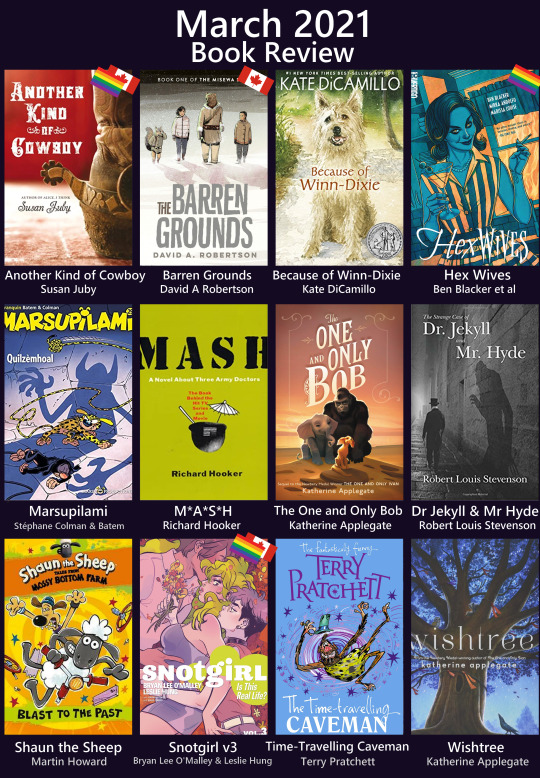
This was a month of some amazing reads for me. Seriously, there’s a solid four novels all competing for my favourite book of the month, and many other fun reads besides. Depending what you like I would highly recommend most of these.
Another Kind of Cowboy
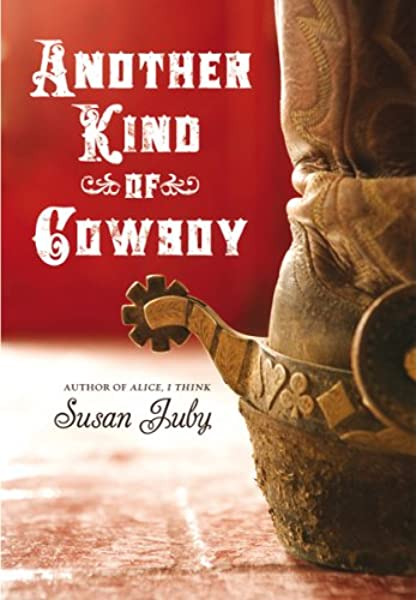
This was a really fun, queer YA novel. It’s about two very different teenagers: meticulous, anxious Alex from a dysfunctional family whose entire life revolves around riding... even if it's only the more "manly" Western-style riding his father approves of; and rich, naïve, self-centred Cleo who never cared much about riding but who has been shipped off to a equestrian boarding school in an attempt by her absentee parents to get her back on the straight and narrow. These two meet when Cleo, after she embarrasses herself at a show, is sent to new trainers — the same trainers who take on Alex when he decides to secretly stop riding Western and start learning English-style dressage instead.
The Barren Grounds
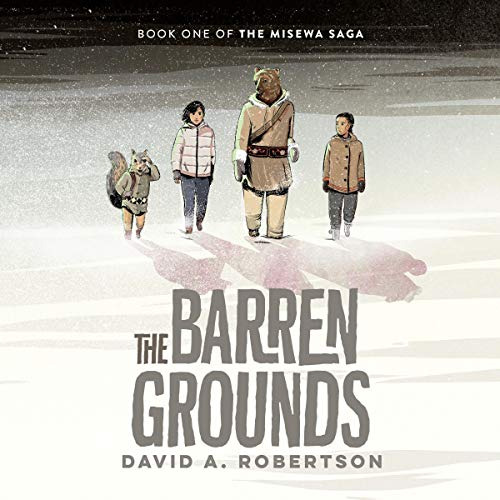
If you liked The Lion, The Witch, and the Wardrobe but want something less white, Christian, and monarchy-centred then this is the book for you, it very much felt like an Indigenous Narnia story. Morgan and Eli are two Indigenous children who were forced away from their communities and into the foster care system. Morgan, who has been in it most of her life, feel disconnected and angry at everyone and everything, but finds herself obliged to care about her new foster brother who is in his first foster home and still shaken by the loss of his family. While the two are trying to connect, they are shocked to discover a way into a icy, snow-covered land populated with animals that walk and talk like humans… and which are slowly dying out because of the endless winter they’ve been cursed with.
Because of Winn-Dixie

This is a children’s classic that I have just never gotten around to reading before. I finally picked it up and read it in a single day. It was really cute! The story of how a stray dog, Winn-Dixie, gets people to look past their differences and prejudices, and brings a community together. Very warm and fuzzy.
Hex Wives

A graphic novel I’d seen mentioned in queer circles before and finally got around to reading. I had mixed feelings about it… the story itself was pretty neat, and the art was decent (better than the front cover suggests), but there’s that edgy american-style comic vibes to it that I’m a little tired of. Still, a worthwhile read if you want something that mixes bubbly hollow suburbia horror with witchcraft and brutal scheming.
It’s about a coven of witches who are constant reborn and eventually regain their memories and powers from their past lives. Fearing their power, they are hunted across time by men who would have them destroyed. Realizing that there’s no way to permanently eliminate them as long as they’re reborn after death, the men concoct a new plan to limit their power… to find them before they remember their past lives and shackle them into the life of a suburban housewife.
Marsupilami: Quilzemhoal
...Disappointing. I’ve always had a soft spot for Marsupilami and I finally read the first book a few months back. It was pretty fun and cute, but definitely a little racist. But it was old and I decided to pick up one of the newer books in the series to see if the creators improved on that front. It wouldn't be the first graphic novel series where the authors grow and adapt their work to fit more modern views. Well, somehow got more racist. I couldn’t actually finish this one. So yeah, I guess this is not a series I’ll be continuing, no matter what nostalgia I still have for it.
MASH

The novel that inspired TV series M*A*S*H! I’ll be honest, I didn’t really expect to like this given that I’d mostly heard that it was nowhere near as good as the show, but it was genuinely hilarious. Different for sure, but really enjoyable if you like a very dry sort of humour.
This novel is about three doctors — Hawkeye Pierce, Trapper John Mcintyre, and Duke Forrester — who have been drafted into the Korean War assigned to the 4077th Mobile Army Surgical Hospital, a MASH unit near the front. To quote the foreword “A few flipped their lids, but most of them just raised hell, in a variety of ways and degrees”. The novel is essentially a collection of vignettes about the pranks, gags, and schemes Hawkeye, Trapper, Duke and the rest of the 4077 get up to while trying to stay sane amid blood, death, and horror.
The One and Only Bob
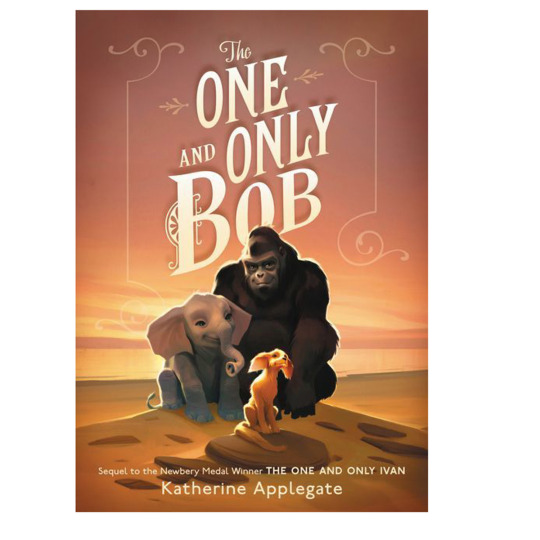
A very cute read. It wasn’t as good as the first book (The One and Only Ivan) but given that Ivan was an absolute masterpiece I guess that would be asking a bit much. The One and Only Bob is still a really fun, heartfelt novel, this time focusing in on Ivan’s canine best friend, Bob, who kept him company while he was living in his small enclosure at the mall. Bob is still best friends with Ivan even now that Ivan is living happily in a zoo with other gorillas, but now Bob is also learning to love and trust humans again after his traumatic childhood, and trying to figure out what it actually means to be a dog.
The Strange Case of Doctor Jekyll and Mr Hyde
Another classic I had just never read, so I listened to this one on audiobook. I won’t describe the story because I think just about everyone knows the basic premise. It was fine! Not as boring as Frankenstein, not as interesting as Dracula. Definitely not scary, but it posed mildly interesting questions about human nature, and the language was smooth and pleasant to hear read aloud. I don’t regret reading it, but I also wouldn't recommend people go out racing for it either.
Shaun the Sheep: Blast to the Past
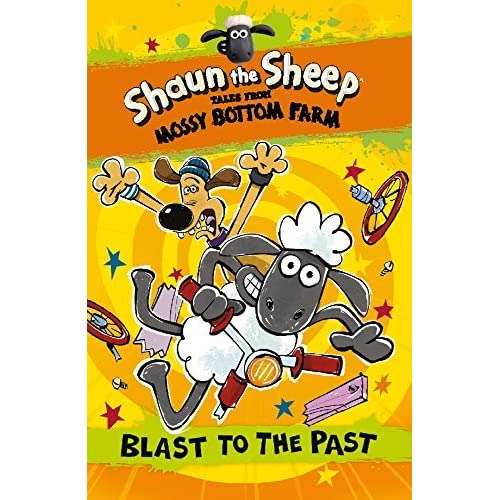
I shamelessly adore these Tales From Mossy Bottom Farm chapter books. They adapt Shaun the Sheep so well. Characterization is good, the art is charming, and the stories are all funny and quirky. It’s like candy reading. In this one, Shaun and the Flock accidentally invent a time machine rather than a go kart and find themselves back in the past, trying to help the much younger and less experienced Farmer manage the farm to keep it from failing and altering the future as they know it.
Snotgirl v3

If you haven’t read this graphic novel series but like having your brain broken, then you absolutely should try it. It’s by Bryan Lee O’Malley, creator of Scott Pilgrim, and it tackles similar themes as his others works: coming-of-age but rather than a child or teenaged coming-of-age story, O’Malley writes about young adults in the twenties and early thirties needing to figure out how to get a hold of their chaotic, dysfunctional lives while dealing with outlandish problems.
Snotgirl is about Lottie, a fashion blogger/influencer who comes to realize that while her online presence is polished her real life is a mess, and that her cynicism and pretension has left her with shallow relationships. And that it’s her responsibility to fix it. The strange and beautiful Caroline and her mysterious brothers don’t make things easier, since accidents and murders seem to follow her… but without anyone actually seeming to die. Lottie needs to navigate her friends, her ex’s, her own self-image, and a strange surrealism that surrounds her newest friend and romantic interest
...And honestly shit only keeps getting weirder. I really thought it’d give me some answers in book three, but nope. So for genuine fucking weirdness and fantastic character development, give this a try.
The Time Travelling Caveman
Another anthology of short stories written for children that Terry Pratchett wrote during his writing career. They’re all weird and quirky, but I wouldn’t call them best examples of his work — probably unsurprising since they’re mostly from pretty early in his career. Still, I think I enjoyed other anthology collections of his over this one. Kinda mediocre for Pratchett.
Wishtree
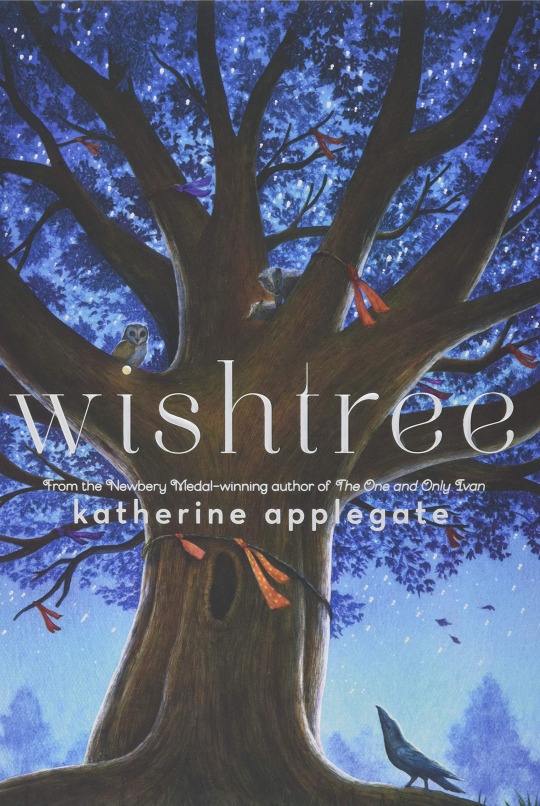
An absolutely beautiful story, unsurprising since it’s from Applegate, but this one was really stunning even by her standards. This story is told from the POV of Red, an old oak tree who has been living in this neighbourhood and watching it grow for a very long time, providing homes for the local animals, shade for the residence, and playing the important role of neighbourhood “wish tree”. Optimistic and friendly, Red has seen exactly how wonderful people can be… but is about to see how bad they can be as well. When a new immigrant family moves into the neighbourhood not everyone is welcoming, and Red gets stuck in the middle of it.
#book review#book reviews#katherine applegate#the one and only bob#the one and only ivan#wishtree#mash#richard hooker#terry pratchett#the time travelling caveman#ya#canlit#canadian literature#kidlit#children's literature#middle grade#queer lit#lgbt books#bryan lee o'malley#scott pilgrim#snotgirl#shaun the sheep#dr jekyll and mr hyde#the barren grounds#another kind of cowboy#hex wives#because of winn dixie#chatter#tumblr's new post editor said i'm not allowed to post more than text pictures in the entire post#so my body text is Not Formatted Right and it's Annoying Me
0 notes